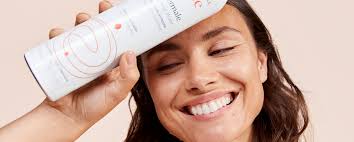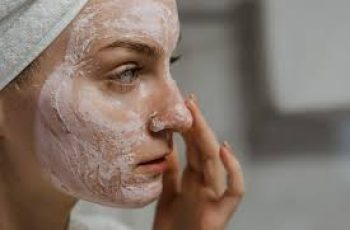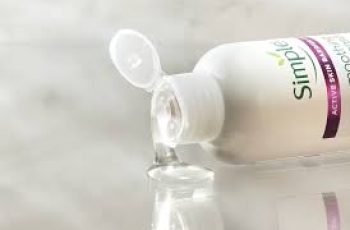
Thermal Spring Water in Skincare: Is It Really Worth It? A Dermatologist’s Perspective
One of the most frequently asked questions dermatologists hear from patients is, “What kind of water should I be using to wash my face?” For many, the answer seems simple—just use tap water.
However, in recent years, thermal spring water has garnered increasing attention in the skincare community for its potential to soothe, hydrate, and even repair the skin barrier.
But is it actually necessary for everyone?
In this guide, we’ll explore what thermal spring water is, how it compares to other cleansing waters like micellar water, who should use it, its benefits and drawbacks, and how to use it most effectively.
Whether you’re someone with sensitive skin or just curious about whether this trending skincare ingredient is worth the investment, this guide will help you decide.
📌 What Is Thermal Spring Water?
Thermal spring water is water that has been naturally filtered through layers of earth and rock, emerging from deep underground springs that are typically located in geologically rich areas—often near mountains or volcanoes.
During its subterranean journey, this water picks up a wide array of minerals and trace elements, such as:
Selenium
Zinc
Magnesium
Calcium
Silica
Bicarbonates
Sulfur
These elements can vary widely depending on the source, making each brand of thermal spring water unique.
Crucially, this water is bottled directly at the source to maintain its purity, sterility, and mineral content.
Unlike municipal tap water, it is free from common additives like chlorine and fluoride, which can sometimes irritate sensitive skin.
💧 Thermal Spring Water vs. Micellar Water: What’s the Difference?
Many people confuse thermal spring water with micellar water, especially since both are marketed as skincare “waters.” While they may seem similar at first glance, they serve very different purposes:
Thermal Spring Water
Primary role: Soothe, hydrate, and rebalance the skin
Does not cleanse: It contains no surfactants or micelles
Best used for: Rinsing after a cleanser or soothing irritated skin
Micellar Water
Primary role: Gently cleanse the skin
Contains micelles: Tiny surfactant molecules that attract dirt and oil
Best used for: Makeup removal or as a gentle cleanser (especially for sensitive skin)
In short, thermal spring water is not a cleanser.
It should be thought of more like a post-cleansing rinse or treatment spray that calms the skin, while micellar water is a mild cleanser that can sometimes replace traditional face washes.
🧬 Who Should Consider Using Thermal Spring Water?
Although thermal spring water isn’t necessary for everyone, it can be a valuable addition to a skincare routine in certain scenarios. Below are the groups that may benefit most:
🔹 People with Sensitive or Reactive Skin
If your skin often becomes red, irritated, or inflamed from common skincare products or environmental factors, thermal spring water may help to calm it down.
The minerals—particularly selenium, zinc, and magnesium—have well-documented anti-inflammatory and barrier-supportive effects.
🔹 Those Living in Hard Water Areas
Hard water contains high levels of calcium and magnesium, which can disrupt the skin’s acid mantle and barrier function. Over time, this can contribute to dryness, irritation, and even breakouts.
If your home water supply is hard and you don’t use a water filter or softener, rinsing with thermal spring water after cleansing may help mitigate these effects.
🔹 People with Eczema, Rosacea, or Atopic Dermatitis
Some forms of thermal spring water (especially those rich in selenium and sulfur) have shown promise in reducing the symptoms of chronic inflammatory skin diseases.
These waters may reduce itching, redness, and flare-ups, making them useful in conjunction with medical treatment.
🔹 Post-Procedure Skincare
After cosmetic treatments such as laser resurfacing, microneedling, chemical peels, or dermabrasion, the skin is more sensitive and vulnerable to irritation.
Using thermal spring water during this recovery phase can help reduce inflammation and support the healing process.
🌿 Benefits of Thermal Spring Water
While it might seem like “just water,” thermal spring water offers a range of skin health benefits that come from its mineral composition.
1. Anti-Inflammatory Effects
Minerals such as selenium, zinc, and magnesium are known to suppress inflammation.
This makes thermal spring water ideal for calming skin that is red, irritated, or inflamed—whether due to external aggressors, allergic reactions, or chronic skin conditions.
2. Antioxidant Protection
Selenium, in particular, acts as an antioxidant. It helps to neutralize free radicals generated by sun exposure, pollution, and stress.
This reduces oxidative damage and supports skin longevity and resilience.
3. Antimicrobial Properties
Certain springs, especially those with sulfur content, offer natural antibacterial and antifungal effects.
This may be helpful for individuals with acne-prone skin, seborrheic dermatitis, or other microbial skin conditions.
4. Barrier Repair and Strengthening
Many of the minerals in thermal spring water support the restoration of the skin barrier, which is critical for maintaining moisture and protecting against environmental irritants.
Zinc and magnesium help repair tissue and improve lipid barrier function, enhancing hydration and reducing sensitivity.
5. Enhanced Hydration
Thermal spring water doesn’t just evaporate off the skin—it enhances water retention in the stratum corneum (the outermost layer of the skin).
This can lead to improved suppleness, smoothness, and comfort, especially in dry climates.
⚠️ Potential Drawbacks to Consider
While generally safe and beneficial, thermal spring water isn’t without its limitations:
💰 1. Cost
Thermal spring water sprays are typically more expensive than just using tap water.
Although they’re not prohibitively priced, regular use can add up over time—especially if you’re applying it multiple times a day.
🧪 2. Variable Mineral Content
Not all thermal waters are created equal. Some may have higher concentrations of calcium and magnesium, which—ironically—can have a drying or irritating effect similar to hard water.
It’s important to choose a product with a balanced mineral profile that suits your skin type.
🚫 3. Not Necessary for Everyone
If you already use a high-quality water filter, have resistant or non-sensitive skin, or live in an area with soft water, the additional benefit of using thermal spring water may be negligible.
🌍 Top Recommended Thermal Spring Water Brands
Not all brands of thermal spring water offer the same skin benefits. Here are two dermatologist-recommended options that have been extensively studied and used in clinical settings:
🔹 La Roche-Posay Thermal Spring Water
Origin: La Roche-Posay, France
Key benefits: Rich in selenium, offering antioxidant and soothing effects
Best for: Sensitive, red, or post-procedure skin
Texture: Fine mist, easily absorbed without dripping
How to use: Spray on face after cleansing or during the day to refresh and hydrate
🔹 Vichy Volcanic Thermal Water
Origin: Volcanic springs in Auvergne, France
Key benefits: Contains 15 minerals including iron, calcium, potassium, and manganese
Best for: Strengthening the skin barrier and protecting against environmental stress
Bonus: Often paired with other Vichy products for enhanced barrier support
🧴 How to Use Thermal Spring Water Effectively
✨ Best Practices:
As a final rinse: After washing your face with cleanser and regular water, spritz thermal spring water on your face as a final rinse to offset any irritation from tap water.
As a toner or refresher: Use throughout the day to rehydrate and calm your skin, especially in dry environments or after sun exposure.
During flare-ups or irritation: Keep a bottle in your bag for calming inflamed or reactive skin on the go.
Post-treatment care: Apply immediately after cosmetic procedures to support healing and reduce discomfort.
💡 Pro Tip: After spraying thermal spring water, let it sit for a few seconds, then gently pat off the excess with a soft tissue.
Leaving water to air-dry on the skin can actually lead to trans-epidermal water loss (TEWL) and dehydration.
Final Thoughts: Is Thermal Spring Water Worth It?
Thermal spring water is not an essential product for every skincare routine, but for the right skin type and circumstances, it can make a significant difference.
If you suffer from sensitive skin, inflammatory conditions, or live in an area with hard tap water, incorporating thermal spring water into your regimen can help soothe, protect, and hydrate your skin effectively.
However, if your skin is naturally resilient or if you already use filtered water at home, then you may not notice a dramatic difference.
❓ Not Sure If Thermal Spring Water Is Right for You?
If you want to better understand your skin type and sensitivities, consider taking a science-based skin quiz designed by dermatologists.
This can help you tailor your skincare regimen, including whether to include specialty products like thermal spring water.
If you have any more questions about thermal spring water or skincare in general, feel free to ask—I’m here to help!


